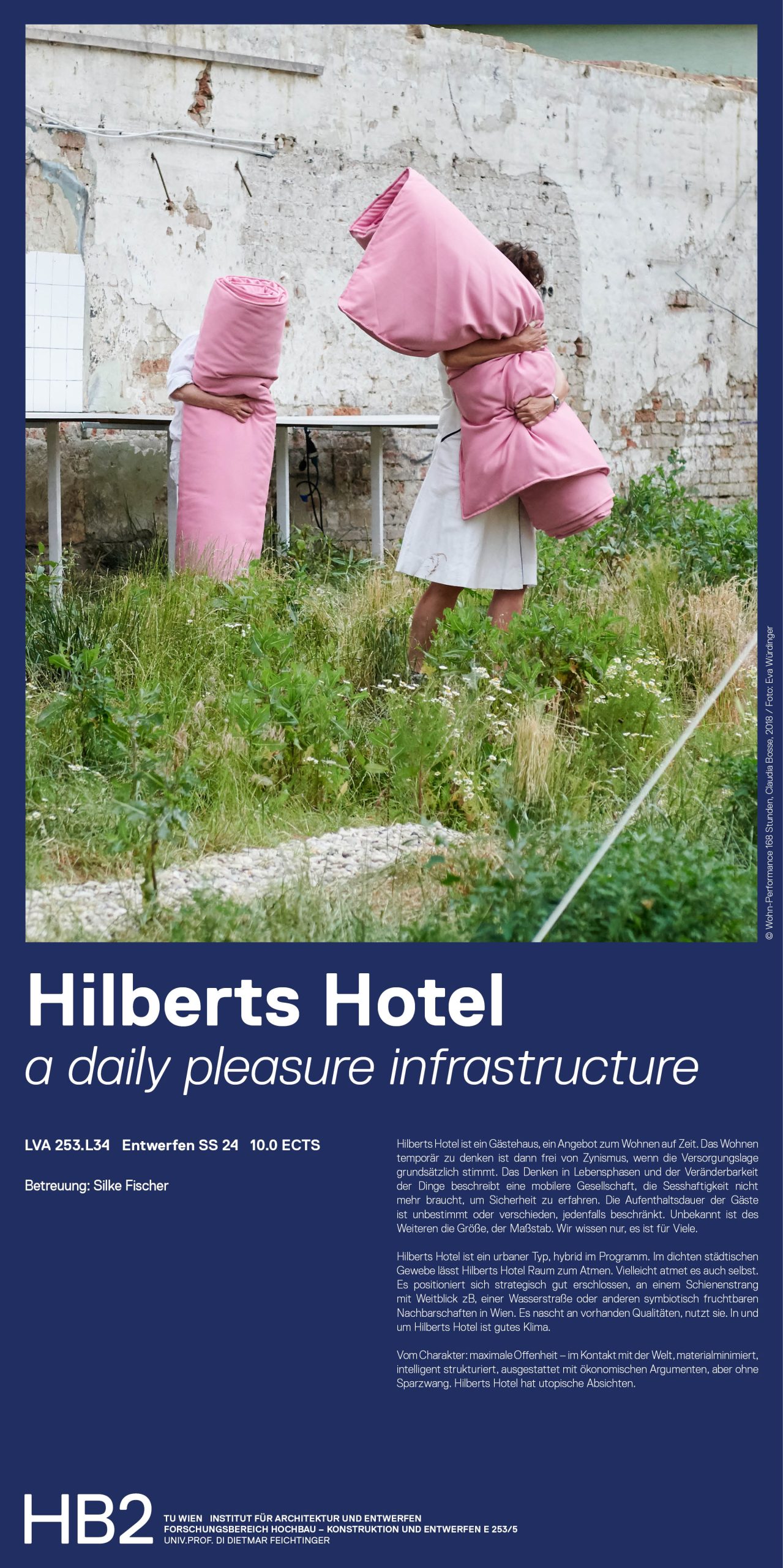LVA 253.L34 Design Studio SoSe 24 10.0 ECTS
Supervision: Silke Fischer
A hotel with an infinite number of rooms is occupied.
An additional guest arrives in the evening. The hotel management makes room. They ask the guest in room 1 to move to room 2, guest 2 moves to 3, guest 3 to 4 and so on (n+1). Everyone moves up a room – room 1 becomes free.
The next evening, an infinitely long bus arrives with an infinite number of guests. The hotel management asks all guests to move to the room with the double room number (2n). Guest in 1 moves to number 2, guest in 2 moves to 4, 3 to 6, 4 to 8, 5 to 10, 6 to 12, 7 to 14, 8 to 16, 9 to 18 and so on.This frees up all rooms with odd numbers.
Everyone can check in. There are never any free rooms in the infinite hotel and yet there is always room.
Hilbert’s hotel is an urban type, hybrid in its programme. In the dense urban fabric, Hilbert’s hotel leaves room to breathe. Perhaps it even breathes itself. It is strategically well-positioned, on a railway line with a far-reaching view, for example, a waterway or other symbiotically fertile neighbourhoods in Vienna.
It nibbles on existing qualities and utilises them. There is a good climate in and around Hilbert’s hotel. In character: maximum openness – in contact with the world, minimised in terms of materials, intelligently structured, equipped with economic arguments, but without the need to save money. Hilberts Hotel has utopian intentions.
